
Front_Office_Operations
.pdf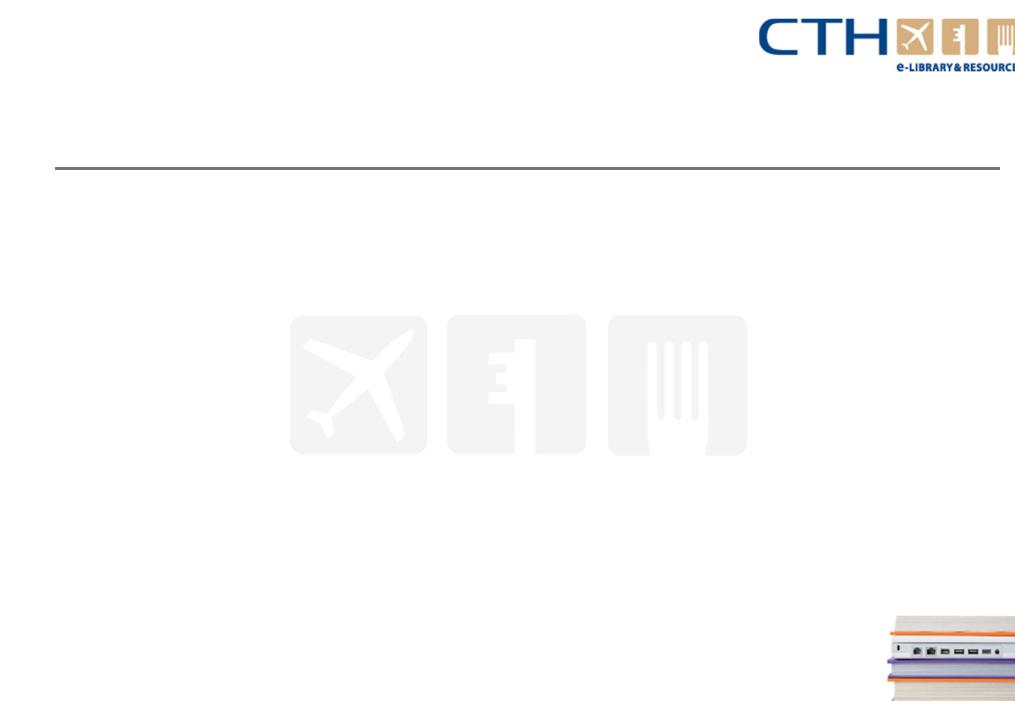
Chapter 8– Guest services and communications
Hotel communication systems
1.4 Internet and e-mail continued…
E-mail offers many advantages for internal and external communication.
●Messages can be sent and received very fast, worldwide, and regardless of time zones and office hours (since the systems works 24 7, and messages await collection at the recipients convenience).
●E-mail is highly economical (estimated 20 times cheaper than fax); often allowing worldwide transmission for the cost of a local telephone call (connecting to the local service point of the Internet Service Provider).
●The recipient can print out a hard copy of the message I and/or documents 'attached' to the message), and the sender has documentary evidence of having sent the message (and, where requested, of the recipient having received It), In case of subsequent queries or disputes.
●E-mail message management software (such as Outlook Express) has convenient features such as: message copying (to multiple recipients); Integration with an 'address book' (database of contacts); stationery (allowing the hotel's letterhead to be used); facilities for mail organisation and filing etc.
www.cthresources.com |
Page 441 |
|
www.cthawards.com |

Chapter 8– Guest services and communications
Hotel communication systems
1.5 Paper-based written communication
Hotels will also use a variety of more 'old fashioned' paper based communications, sent via the internal mail delivery system (e.g.. forms, reports and messages) or via the external postal system (e.g.. brochures, confirmation letters, reservation forms, vouchers, copies of accounts, feedback forms and other documentation exchanged with guests).
In order to be effective in a Front Office role, you will need to become familiar with - and proficient and professional in the use of - a range of written formats. Each hotel will have its own standard forms, documents and 'house style' of communication.
www.cthresources.com |
Page 442 |
|
www.cthawards.com |
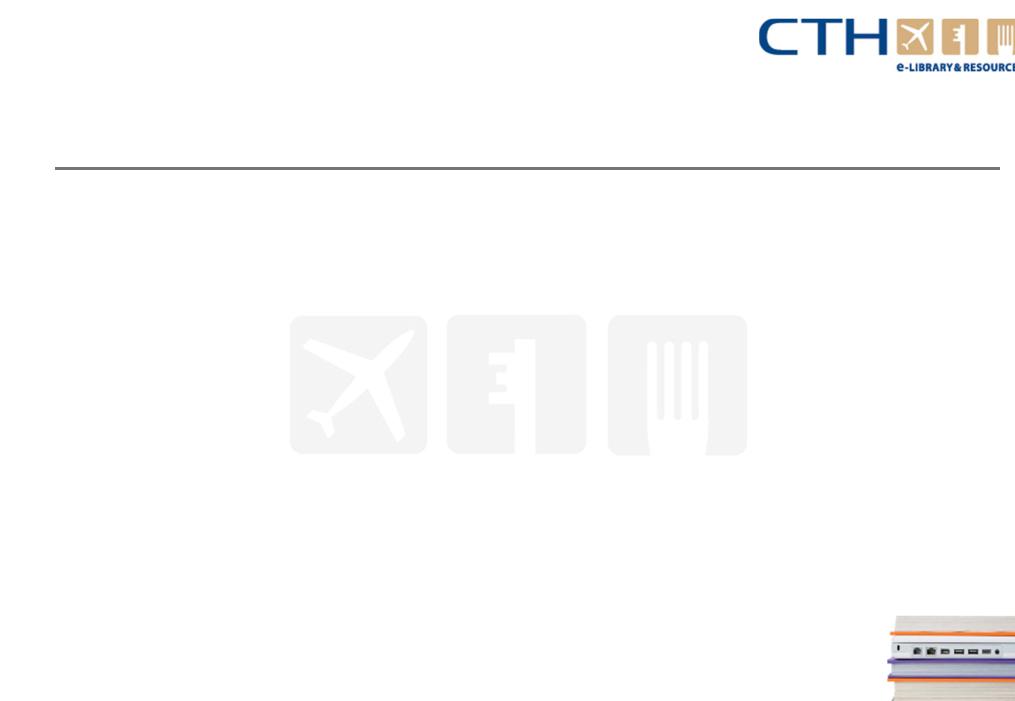
Chapter 8– Guest services and communications
Hotel communication systems
1.6 Face-to-face communication
In addition, hotels will use a variety of 'face-to-face' communication mechanisms, such as:
●Meetings (e.g.. staff meetings, shift handover meetings, management meetings)
●Interviews (e.g.. staff selection, appraisal or disciplinary interviews)
●Presentations (e.g.. for staff training or for selling the hotel to travel agencies or corporate clients)
●Person-to-person discussions and information exchanges of all kinds - especially Front Office service interactions with guests!
Face-to-face communication is particularly effective in hospitality situations.
●It allows non-verbal cues, both audible (e.g.. tone of voice) and visual (body language) to be used to enhance understanding, communication and persuasion.
●It allows for immediate interaction: on-the-spot exchange of questions and answers, for example
●It humanises communication, allowing personal rapport to be established and social skills to be used: this is particularly helpful for managing sensitive or awkward situations - but it is also a key ingredient in providing hospitality and personal service to guests
www.cthresources.com |
Page 443 |
|
www.cthawards.com |

Chapter 8– Guest services and communications
Hotel communication systems
1.7 Communication services for guests
A hotel's guests may be far from family, friends and business networks, and they will often want to maintain these connections while they travel. In addition, they may need access to communication facilities in order to organise travel and entertainment, arrange to meet people, use the Internet etc. Communication services are thus an important part of a hotel's total 'package of benefits' for guests.
Main communication services provided through Front Office:
●Guest telephone services
●Guest mail services
●Business services
●Information services
www.cthresources.com |
Page 444 |
|
www.cthawards.com |
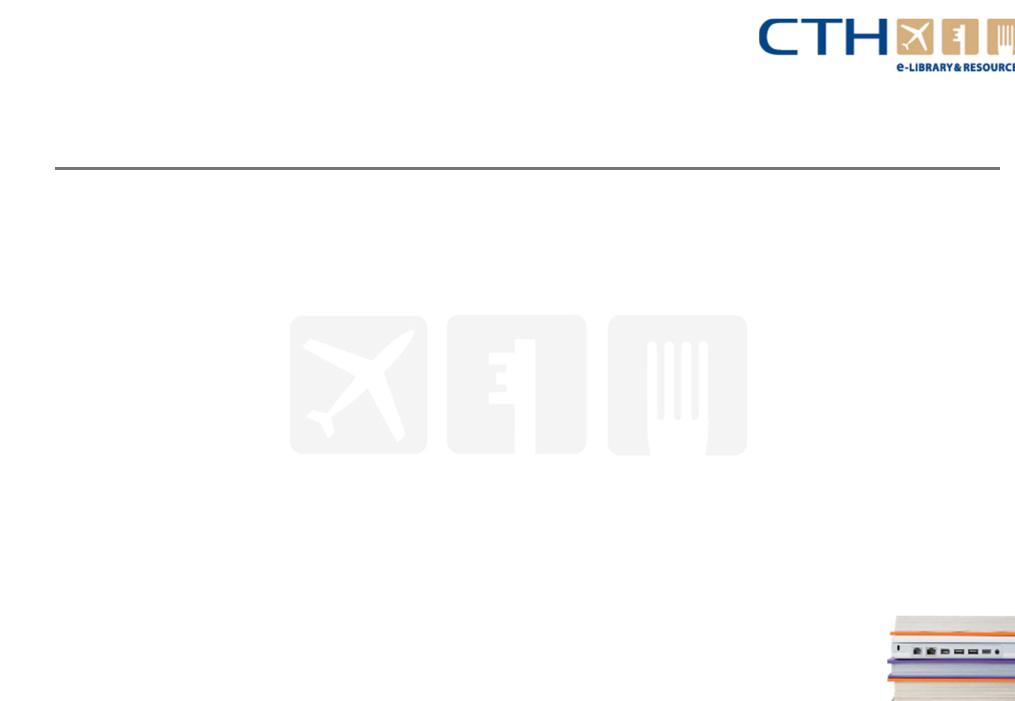
Chapter 8– Guest services and communications
Telephone services
2. Telephone services 2.1Managing the switchboard
2.2Incoming calls for guests
2.3Taking guest messages
2.4Outgoing calls by guests
www.cthresources.com |
Page 445 |
|
www.cthawards.com |

Chapter 8– Guest services and communications
Telephone services
One of the most important duties of Front Office is to answer the phone on behalf of the hotel, and either deal with the enquiries or issues raised by the caller (e.g.. give Information or take a reservation); or transfer the call to the person or extension requested (whether a staff member or a guest); or transfer the call to the most appropriate person or department to help the caller; or take messages if required.
In a larger hotel, there will usually be a separate switchboard operator or telephonist to perform all these tasks. In smaller hotels, the receptionist may answer the phone alongside her other duties - and particular care will have to be taken to avoid sounding irritated or confused by the interruption! As with guests calling in person at the front desk, every telephone caller will expect to be greeted courteously and professionally, and given the telephonist's full and undivided attention for the duration of the call.
www.cthresources.com |
Page 446 |
|
www.cthawards.com |
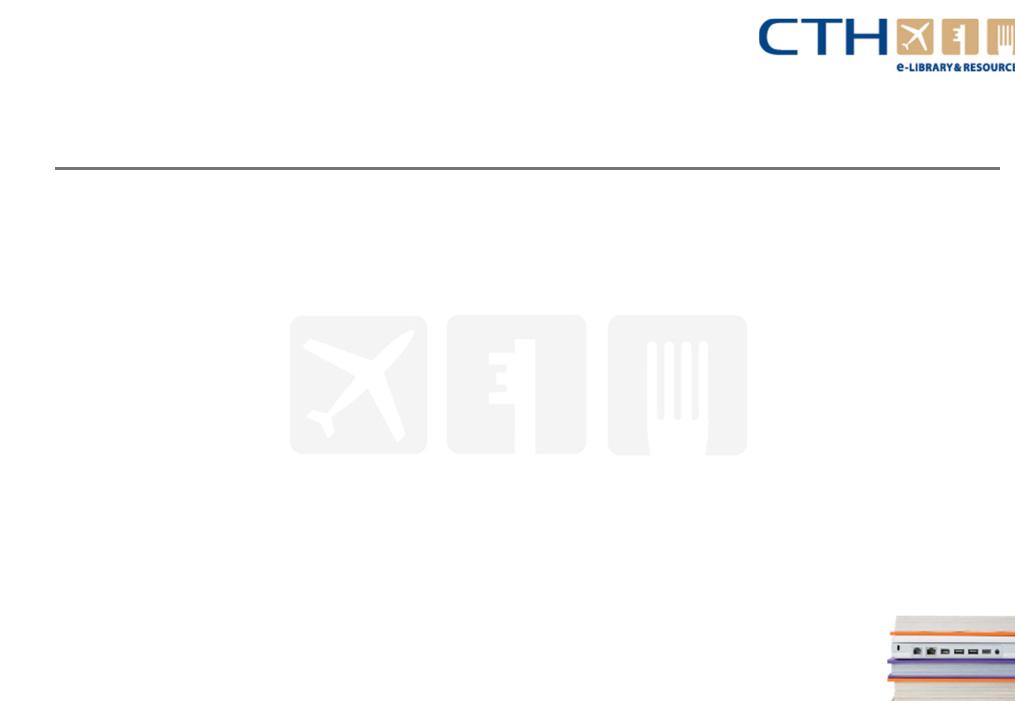
Chapter 8– Guest services and communications
Telephone services
2.1 Managing the switchboard
Basic requirements and techniques that should be observed.
●Every incoming telephone call should be answered promptly and with an appropriate greeting: 'Good morning. The Hill Town Hotel. You're speaking to Joe: how can I help you?'
●The switchboard operator should have immediate access to a directory of in-house extensions, to transfer calls to the requested person ; a guest index (an alphabetical list of guests, by name, showing their room numbers, extensions and dates of stay), in order to put calls through to guest rooms; and arrivals and departure lists, in order to deal with calls for guests who have not yet arrived or checked out.
●The switchboard operator should be familiar with the procedures for dealing with different types of calls: to whom different types of enquiries should be transferred; what information about guests can be given out to callers (if any); how to deal with common switchboard problems (e.g.. disconnected calls, unobtainable numbers, engaged numbers); how to provide particular switchboard services (e.g.. directory enquiries or reverse-charges or 'collect' calls); and how to take messages or connect callers to voice mail facilities.
www.cthresources.com |
Page 447 |
|
www.cthawards.com |

Chapter 8– Guest services and communications
Telephone services
2.1 Managing the switchboard continued…
●Callers should not be left on hold indefinitely, if the extension to which a call has been put through is not being answered, or if the switchboard operator puts a caller on hold while making enquiries or handling other calls. The operator should return regularly to an on-hold caller, keeping him informed of progress (‘I’m sorry, there’s no answer on that extension’, or 'I'm sorry to keep you waiting’, etc) and offering options where possible (‘would you like to leave a message?’ or can I get Ms X to call you back when she becomes available?’).
●When transferring a call to another department, the switchboard operator should ascertain the caller's name and purpose for calling, and pass this on to the target recipient, so that callers don't have to repeat themselves.
www.cthresources.com |
Page 448 |
|
www.cthawards.com |

Chapter 8– Guest services and communications
Telephone services
2.2 Incoming calls for guests
The first requirement for putting incoming calls through to guests is for switchboard to be able to locate the guests' room numbers swiftly and efficiently. In a manual system, this requires a printed guest index. In a computerised system, the operator can simply type , in the guest's name, and the room number will come up on screen.
If a guest does not answer the incoming call,
●If the call is urgent, it may be possible to try and locate the guest and inform him of the call, by 'paging'. A member of uniformed staff may be sent round the public areas of the hotel calling 'Paging Mr. X', or the hotel might have a public address system for this purpose - or a message could be sent through to the restaurant or asking them to enquire after the guest in their areas. Some hotels offer personal 'pagers‘ (messaging devices) to guests who are expecting an important call, or the guest may simply keep reception informed of his whereabouts, so that he can be notified when the call comes in.
●The caller may be offered the option of leaving a message for the guest, either in person with the switchboard operator (who writes down the message to be passed on to the guest), or via a recorded
'voice mail' option on the telephone system.
www.cthresources.com |
Page 449 |
|
www.cthawards.com |
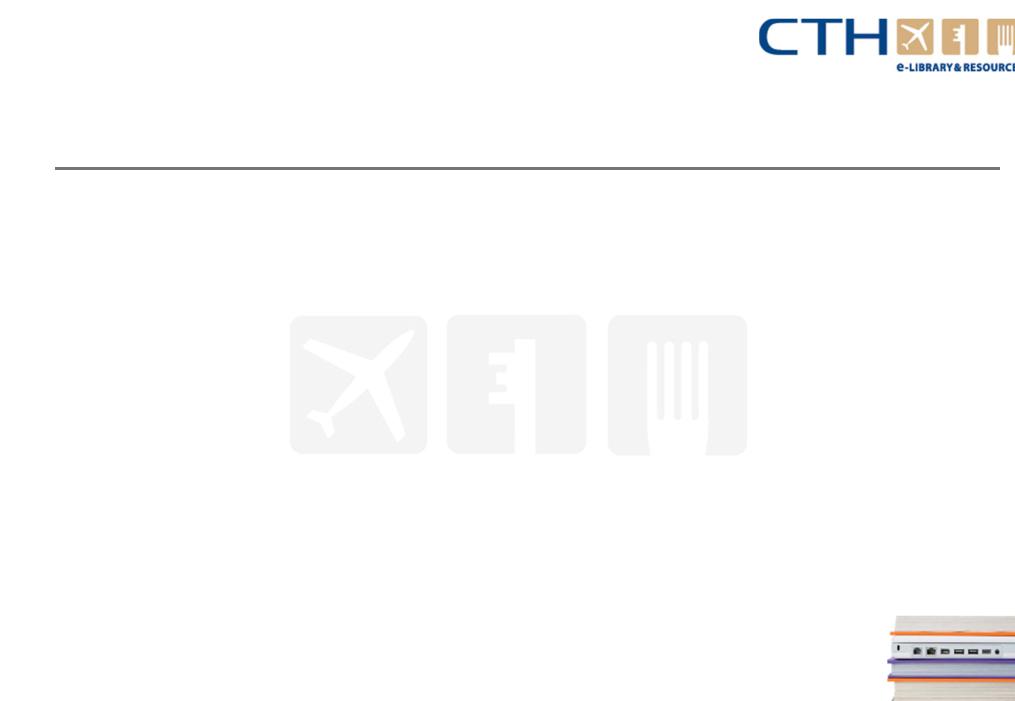
Chapter 8– Guest services and communications
Telephone services
2.3 Taking guest messages
There may be a variety of options for taking messages for guests.
In a manual system, the telephonist may take a hand-written message, perhaps on a pre-printed telephone message pad. The message should clearly state: the date and time of the call; the name and room number of the recipient; the name and telephone number of the caller; and the substance of the message (if any). Message pads often include a range of ‘tick boxes' with common message options such as 'called', or 'Returned your call' or 'Please back'. The message should be placed in the guest's key pigeon hole, or held at Front Office. The telephone system of the hotel may also allow a 'message waiting’ alert to be left on the guest's in-room telephone (e.g.. a flashing light or message).
The telephone system of the hotel may offer individual voice-mail, which allows callers to leave recorded messages. A 'message waiting' alert is shown on the in-room phone, and the guest can dial in his or her extension (or a pre-allocated access code) to retrieve the message.
In a computerised system, the switchboard operator may type messages into the 'Message‘ area of the system, for subsequent printing out or transmission to the guest
www.cthresources.com |
Page 450 |
|
www.cthawards.com |
